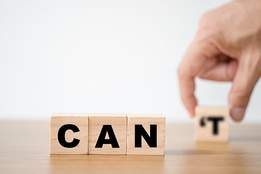Can People Get Pregnant By Animals - The Biological Truth
There's a question that pops up sometimes, maybe from curiosity, maybe from something you heard in a story, and it's about whether people can actually get pregnant by animals. It's a rather direct question, and the simple answer, straight away, is no, they cannot. This idea, while perhaps a bit unusual to think about, really does come up more often than you might guess, so it's good to talk about it openly and clearly.
You see, our world is full of all sorts of living things, each with their own unique ways of living and making more of their kind. We share our planet with so many different animals, and it’s natural, in a way, to wonder about the connections between us and them. Sometimes, these thoughts might even come from old tales or maybe things you've seen in movies or books that aren't quite real life, you know?
So, we're going to take a closer look at why this just isn't something that happens in the real world. We'll explore the reasons, which are pretty much rooted in how life works at a very basic level. It’s all about biology, and once you get a little bit of insight into that, it becomes quite clear why people can't get pregnant by animals, or vice versa, for that matter.
- Is The Project X Party Real
- Wonka Shockers
- Taboo Nawasha Net Worth
- Justin Bieber Career
- Teyana Taylor Career
Table of Contents
- Can People Get Pregnant by Animals - The Short Answer?
- Why Can't Humans and Animals Create Offspring?
- Are There Any Exceptions to Humans and Animals Making Babies?
- What About Very Similar Animals?
- Can Humans Share Anything with Animals Biologically?
- Misconceptions and Fiction About People and Animals
- The Unique Nature of Human Reproduction
- Understanding Our Place in the Animal Kingdom
Can People Get Pregnant by Animals - The Short Answer?
The very quick, very clear answer to the question, "Can people get pregnant by animals?" is a firm no. It simply isn't something that can happen. This is a pretty important piece of information to grasp, as it helps clear up any lingering confusion or worries someone might have about it. There are fundamental reasons why this is the case, and they come down to the way living things are put together, you know, on the inside.
Our bodies, and the bodies of all animals, are built to reproduce with their own kind. It's a bit like trying to fit puzzle pieces from two completely different puzzles together; they just don't match up. This applies to humans and any other animal you can think of, whether it's a cat, a dog, a horse, or a bird. Basically, the biological differences are too great, and that's the main point, actually.
So, if you've ever wondered about this, you can put your mind at ease. The biological systems that allow for reproduction are incredibly specific, and they only work within the boundaries of a single species. This is how life on Earth tends to keep things organized, ensuring that each type of living thing continues to make more of its own kind, which is pretty clever, really.
- Lady Gaga Age 2025
- Chatgpt Plus Availability Iran Payment
- What Is The Movie Project X Based On
- Sarapbabetv
- Who Is Benny Blanco
Why Can't Humans and Animals Create Offspring?
The main reason humans and animals cannot create offspring together comes down to something called the "species barrier." This is a natural boundary that stops different kinds of living things from making babies. Think of it this way: every living creature has a specific number of tiny structures called chromosomes inside their cells. These chromosomes carry all the instructions for building and running that living thing. Humans, for example, have 46 of these structures, arranged in 23 pairs, and that's a fixed number for us, pretty much.
Now, a dog, for instance, has 78 chromosomes, while a cat has 38. These numbers are very different from ours, and they're also different from each other. For a new life to start, the egg cell from one parent and the sperm cell from the other parent need to combine, and their chromosomes have to line up perfectly. When the numbers don't match, or when the instructions on those chromosomes are too different, the whole process just can't get going. It’s like trying to connect two different types of electrical plugs; they simply don't fit, you know?
Beyond just the number of chromosomes, there's also the problem of genetic makeup. Even if the chromosome count was somehow similar, the actual genetic information on those chromosomes is incredibly specific to each species. A human egg cell and an animal sperm cell, or vice versa, wouldn't recognize each other in the way they need to for a new life to begin. The proteins on their surfaces, which act like tiny keys and locks, just don't fit together. So, in some respects, it's a biological lockout, meaning pregnancy between humans and animals is not possible.
Are There Any Exceptions to Humans and Animals Making Babies?
You might have heard about animals that are a mix of two different species, like a mule. A mule is a baby born from a horse and a donkey. This is an interesting case because horses and donkeys are quite similar, but they are still different species. Horses have 64 chromosomes, and donkeys have 62. When they have a baby, the mule ends up with 63 chromosomes, which is a mix, naturally.
However, there's a big catch with these kinds of mixed-species offspring: they are almost always unable to have babies of their own. Mules, for example, are sterile, meaning they can't reproduce. Their chromosomes don't line up correctly when it's their turn to make egg or sperm cells, so they can't pass on their genes. This shows that even when two very similar animal species can have offspring, the genetic differences are still significant enough to prevent further reproduction, which is a key point, actually.
When we talk about humans and other animals, the differences are far, far greater than between a horse and a donkey. The genetic distance between a person and, say, a dog or a cat, is so vast that even the initial steps of reproduction can't happen. There's no way for the cells to even begin the process of combining, let alone creating something that could grow. So, to be honest, there are no exceptions when it comes to people and animals making babies together; it's just not how biology works, pretty much.
What About Very Similar Animals?
Sometimes, people wonder if animals that look very much alike, or are in the same general family group, might be able to have babies together. For instance, lions and tigers are both big cats, and they can sometimes produce offspring, like a liger or a tigon. These animals are often quite impressive to look at, and they show that sometimes, closely related species can, in fact, interbreed, in a way.
But even in these situations, like with the liger, there are often challenges. Ligers, for example, tend to be much larger than either a lion or a tiger, and they can have certain health issues. More importantly, like mules, ligers and tigons are usually sterile, meaning they can't have their own babies. This means that even when a union between very similar animals is possible, it's often a biological dead end, preventing the mixed line from continuing, you know?
The key thing to remember is that humans, while part of the animal kingdom, are a distinct species. Our genetic makeup is unique to us. While we share a lot of biological features with other mammals, the specific details of our genetic code and reproductive systems are different enough to create that unbreakable species barrier. So, while very similar animals might sometimes create a hybrid, this principle just doesn't extend to humans and other animals, not even a little bit.
Can Humans Share Anything with Animals Biologically?
While humans and animals can't share the ability to create offspring, we can, unfortunately, share other biological things. This usually comes in the form of diseases. These are often called "zoonotic" diseases, which just means they can pass from animals to people. Think about things like the flu, or even rabies, which can spread from an infected animal to a human. This is a very real biological connection, and it's something we need to be careful about, naturally.
These diseases are caused by tiny living things like viruses, bacteria, or parasites. They can live in an animal's body and then, under certain conditions, jump to a human. This is why we have things like pet vaccinations and why it's important to wash your hands after touching animals, especially wild ones. It's a way that our biology interacts with theirs, but it's very different from sharing genetic material to make a baby, obviously.
So, while the idea of people getting pregnant by animals is a biological impossibility, the sharing of illnesses is a very different story. It shows that there are indeed biological links between us and other creatures, but these links are about shared environments and shared germs, not about shared reproduction. It’s a completely different kind of interaction, and it highlights why it's important to understand the actual ways our bodies can interact with the animal world, basically.
Misconceptions and Fiction About People and Animals
The idea of humans and animals having offspring often comes from stories, myths, and even some works of fiction. Throughout history, many cultures have had tales of half-human, half-animal creatures, like centaurs or mermaids. These stories are usually meant to explain things about the world, or to teach lessons, or just to entertain. They are powerful ideas, and they stick with us, you know?
In modern times, science fiction or fantasy movies and books might also show creatures that are a mix of human and animal traits. These are often very imaginative and can be quite thought-provoking. However, it's really important to remember that these are just stories. They are products of human creativity, not reflections of biological reality. What happens in a fantasy world is very different from what our bodies can actually do, pretty much.
Sometimes, these fictional ideas can lead to confusion about what's truly possible in the natural world. But when we look at the science, the facts are very clear. The biological rules that govern reproduction are quite strict, and they don't allow for the mixing of human and animal species in that way. So, while it's fun to think about these mythical beings, it's good to separate them from how life actually works on Earth, to be honest.
The Unique Nature of Human Reproduction
Human reproduction is, in a way, a very specific and intricate process. It involves a precise dance between human egg cells and human sperm cells. Each step, from the release of an egg to its meeting with sperm, and then the incredible development of a new life, relies on all the parts being exactly right for our species. This is why, for example, human reproductive cells are only equipped to recognize and work with other human reproductive cells, as a matter of fact.
Our bodies have evolved over millions of years to ensure that human life continues through human reproduction. This system is finely tuned, and it doesn't have any built-in flexibility for combining with the reproductive systems of other animals. The genetic instructions are simply too different, and the biological signals needed for a successful union just aren't there across species lines, you know?
So, when we think about how new human life comes to be, it's a testament to the specificity of our own biology. It’s a process that is entirely contained within our species, ensuring that we continue to produce human offspring. This is just how nature has set things up, and it's a powerful system that keeps each species distinct and able to continue its own line, which is rather fascinating.
Understanding Our Place in the Animal Kingdom
It's helpful to remember that humans are, in fact, a part of the animal kingdom. We share many things with other animals: we breathe air, we eat food, we move around, and we reproduce. We are mammals, just like dogs, cats, and cows. This connection is important, and it helps us understand our shared biological heritage on this planet, in a way.
However, being part of the animal kingdom doesn't mean we can interbreed with just any animal. Each species has its own unique set of characteristics, including its reproductive blueprint. Think of it like different branches on a very large tree; we're all on the same tree, but we're on different branches, and those branches don't just magically fuse together to create new ones, you know?
So, while we have a lot in common with our animal friends, our specific biological makeup ensures that human reproduction stays within the human species. This is a fundamental rule of biology that helps maintain the incredible diversity of life on Earth. It means that while we can appreciate and interact with animals in many wonderful ways, the creation of new life remains specific to each species, which is how it should be, honestly.
This discussion has looked at why people cannot get pregnant by animals, focusing on the distinct genetic makeup and reproductive systems that create an unbreakable species barrier. We've explored how chromosome differences and genetic incompatibility prevent the successful combination of human and animal reproductive cells. We also touched upon how even closely related animal species that can produce offspring, like mules, often result in sterile hybrids, further illustrating the strictness of biological boundaries. The article also covered how, while reproduction isn't possible, humans and animals can share other biological elements, such as diseases, and how fictional stories have sometimes shaped misconceptions about interspecies breeding. Finally, we considered the unique nature of human reproduction and our specific place within the broader animal kingdom.
- Kim Scott Mathers
- %D8%A8%D8%A7%D9%86%DA%A9 %D9%85%D9%87%D8%B1 %D8%A7%DB%8C%D8%B1%D8%A7%D9%86
- Nell Burton
- Attorneys For Oj Simpson
- Age Lady Gaga

CAN Definition & Meaning - Merriam-Webster

I Can't Give Everything Away (2002 - 2016) | HMV Store

Can You Spot It? Galesburg Picture Quiz #1 | WGIL 93.7 FM - 1400 AM